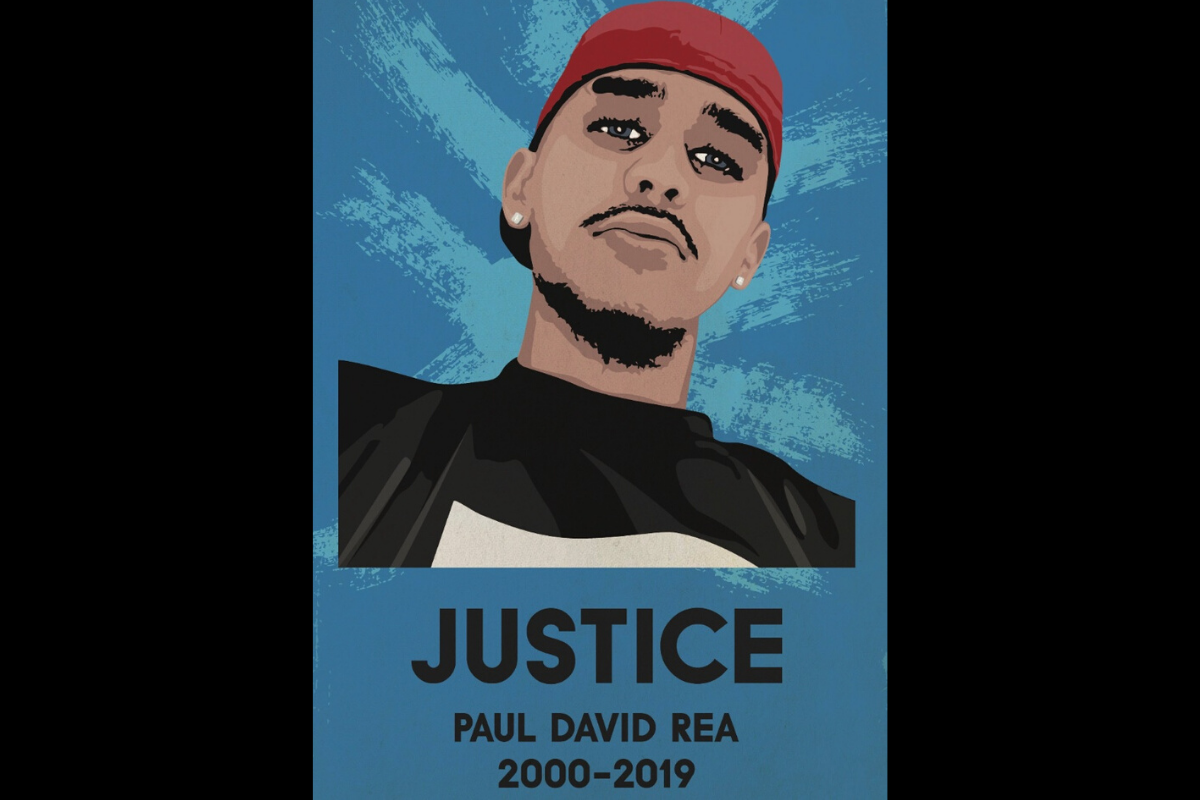

By Sonja Diaz and Julie Diaz Martinez
Last month, we marked the one-year anniversary of our family member Paul David Rea being murdered by Los Angeles County Sheriff’s deputies during a traffic stop just a block away from his East Los Angeles home.
Our pain, sadly, is shared by many other families in Los Angeles who have also lost loved ones at the hands of Sheriff’s deputies. From Ryan Twyman to Kenneth Ross Jr., and most recently, Andrés Guardado, Los Angeles’ Sheriffs have killed with impunity, leaving communities of color frightened and terrorized. Now in the midst of a continued national conversation about police brutality, it time to hold these officers and the systems that enable their violence accountable.
Over the past month and a half, calls for justice have ignited the nation to push for defunding the police. Much of that attention has gone to city police departments, and after weeks of protest, Mayor Eric Garcetti and the Los Angeles City Council have agreed to take initial steps to reimagine policing, and advocates will continue to demand more. But across Los Angeles County’s other cities and unincorporated communities policed by the Los Angeles County Sheriff’s Department, these changes will mean nothing. As Los Angeles County Board of Supervisors considers giving $2.2 million of Measure H funds meant to address homelessness to the Sheriff’s department for outreach, we must ensure we don’t return to business as usual and that reform and accountability doesn’t end at the borders of places like East Los Angeles and Southeast Los Angeles County that Black and Latino communities call home.
In the case of Paul’s death, he sat in the front seat of his best friend’s car when deputies pulled them over for a traffic stop. The cell phone and nearby home surveillance footage of the shooting is harrowing. Paul’s small frame was peppered with bullets. He was lifeless on the street as sheriff’s deputies screamed at him to not move. The brutality of this act is only magnified by the fact that the deputies’ first call was for back-up rather than medical help.
Guardado’s death has other painful similarities to Paul’s story. They were both young men, small in stature, with aspirations and dreams as they embarked into adulthood. They both lived in communities that lack investments to help them get ahead and faced inequalities like access to medical care or secure jobs that pandemics and police brutality make even more deadly and tragic.
Now with growing awareness —and anger— about the systemic inequities that cut far too many Black and Brown lives short, we have to make sure that the Los Angeles County Sheriff’s Department harmful and brutal practices are not allowed to go unchecked as we determine how to dismantle decades of discrimination and reinvest policing resources into services that keep communities safe, healthy, thriving and alive.
First, there needs to be accountability for officer-involved deaths. District Attorney Jackie Lacey has not taken any action against the deputies involved in Paul’s case. She has failed to prosecute all but one officer in any of the 610 police-involved killings in Los Angeles County in her two terms in office. Lacey and other elected officials, including the Los Angeles County Board of Supervisors, have not met with our family nor other families impacted by violence at the hands of sheriff deputies.
There is also a need for drastic culture change. For example, there is documented evidence that deputies participate in an internal gang called the “Banditos,” who identify themselves by matching tattoos. Those officers circled vigils in Paul’s honor and have continued to harass our relatives along with countless other families across Los Angeles County.
The anniversaries for these tragedies add up. This summer marks the 50th anniversary of the Chicano Moratorium, where Los Angeles Times reporter Ruben Salazar was murdered by a sheriff’s deputy. No criminal charges were ever filed in that case either. The long history of impunity must end.
https://www.youtube.com/watch?v=bpj9Man7L1U
The Los Angeles County Board of Supervisors must take action that puts them on the right side of history to change the trajectory of exclusion, discrimination, and racial terror. The combined injustices of COVID-19 and police brutality have unscored how deadly racism and inequality is on Black people and other communities of color. To even consider shifting funds meant to help those who are unhoused to the Sheriff’s Department in the midst of a pandemic causing widespread economic insecurity that will likely force people even more out of their home and onto the streets is unconscionable.
As protests move into the work of mobilization for change, politicians across Los Angeles County have a responsibility to keep up the momentum seen in the streets and not squander this moment of reckoning that deaths like our family member’s and Andres Guardado’s have spurred. Communities across the region are making it clear that that living, working, and playing in healthy communities free of police violence is a demand that will continue to be voiced in the streets and solidified at the ballot box. The Los Angeles County Sheriff’s Department and our elected officials have an opportunity and a moral obligation to act proactively now, or face the consequences in upcoming elections.
***
Sonja Diaz, a civil rights attorney and Julie Diaz Martinez, an immigrant rights activist. Both are family members of Paul Rea, who was killed by Los Angeles County Sheriff’s deputies a year ago.



their communities lack investments that help them get ahead? what are those investments? and my neighborhood never had anything that helped any one I know get ahead. you go to school. work and only have the number of kids you can afford. maybe both parents in the home. those are the things that may help you get ahead